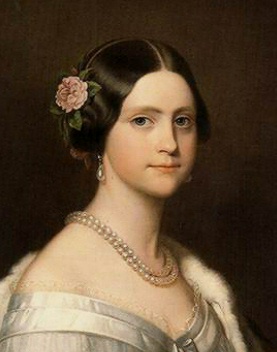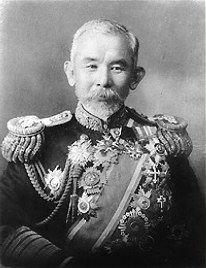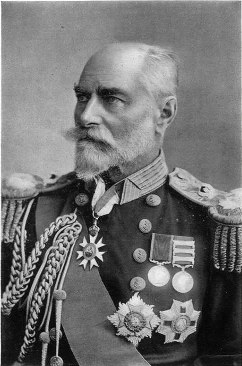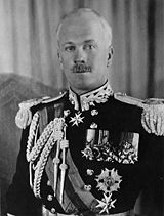
The Nobility
The Illegal Wholesale Theft of Hereditary Titles from the Nobility
Not only are there con artists and scammers out there stealing peoples hard earned money for false genealogies, fake titles and phony knighthoods, but governments have stolen real and genuine titles from the nobility of their lands. Nobility and royalty became such a stench in the nostrils of many countries in the 20th century that governments have disenfranchised their nobility, stolen their titles and robbed them of their status and power. Such was an act of greed or theft. For example, several countries have created constitutional provisions in the supreme law of their lands that totally forbids the use of titles altogether. The nobility therefore cannot use what is rightfully theirs under threat of law. The following countries have such provisions:

Austria (article 149-1 of the Constitution)
Cyprus (article 28-3 & 4 of the Constitution)
Egypt (article 22 of the Constitution)
Greece (article 4-7 of the Constitution)
Japan (article 14 of the Constitution for hereditary titles only)
Turkey (article 174-7 of the Constitution for the titles of Efendi, Bey et Pasha)(Almanach de Bruxelles WEEKLY NEWSLETTER N 13, 10th January 2004 (revised on 31st January 2004)(www.almanach.be)
Governments can legislate anything that the people will tolerate, but laws do not always make things right–only what is truly and actually right makes right. Might, on the other hand, is dangerous and whimsical. It can be cruel and heartless, because political opinion is unstable depending on what is in vogue or who is in power. We need a firm foundation on which to stand, not what is “politically right” in one moment of time, but what is really and truly right for all people. To steal and rob, for example, is generally and universally recognized as wrong in almost all cultures. It is obvious and self-evident. Yet the Western world is guilty of perpetrating this crime against their fellow countrymen–the titled nobility of their nations.
Of course, if one’s country forbids titles, one can move to a new location and use what is rightfully one’s possession. But that does not make things right. One is forced to leave one’s father land and live in exile if one wants to use what is rightfully theirs. However, well-meaning at the time, what these governments did was obviously an act of oppression and injustice.

Laws regarding titles should exist, but not to cheat one’s fellow countryman out of what he rightfully owns. Rather the laws should prohibit and punish “the snake in the grass”—the charlatan or scam artist who sells counterfeit titles of nobility. Power over these titles should be recognized as the exclusive and inviolate right of sovereigns, whether regnant or “de jure.” This right which is inseparably connected to sovereignty in law is called Ius Honorum–a monarch’s royal or noble prerogative to honor and reward others. The regal right to bestow such distinctions, is the same royal privilege that gives them the right to grant knighthoods, or any other kind of office or status. It is a right that continues to survive regardless of what modern countries do to stamp it out. (See: “Sovereignty & The Future of Nobility and Royalty”) The unfortunate bias against titles has done some very real damage not only to the families that have had their status stolen from them, but to individuals, sometimes in very personal ways.
As an example, on November 15, 2005, a lovely Japanese Imperial Princess was forced to give up her succession rights and imperial title, because there were no eligible males in the Imperial family she could marry, so she had to marry a commoner and therefore become one herself. This happened because the Constitution of 1947 destroyed or abolished the royal and noble houses that carried imperial titles. As a result, fifty-one ex-Princes, ex-Marquesses, etc. had to leave the Imperial Family and over nine hundred fifty other noble families were robbed of their right to use their titles. (Almanach de Bruxelles, WEEKLY NEWSLETTERS N 96 & 97, 13th & 20th August 2005) (www.almanach.be) The law simply made it impossible for Princess Sayako to remain with the family of her birth and have a legal marriage. She was cheated out of her natural birthright. And the Japanese Imperial family also faces another problem. No boy has been born to the family since 1965, except very recently, and only a male can inherit the Chrysanthemum Throne of Japan according to the Constitution. Hence, the Imperial family could die out. But there is a popular movement to allow a female to reign. It will be too late, however, for the former Princess. She will forever be excluded, along with her posterity.
A subsequent government, or new constitution, has no lawful right to abolish what it did not create. Again, such is an act of theft–a crime against a segment of society. The following countries, although not abolishing titles, do not recognize them, which is a lesser crime, but still an act of unnecessary discrimination, bias or prejudice.
Bulgaria
Estonia
Italy (the add-on surnames are recognized if conferred before 28 October 1922 i.e. before the fascist period)
Lettonia
Malta (Republic of)
Poland
Portugal
Serbia & Montenegro
Switzerland (Almanach de Bruxelles WEEKLY NEWSLETTER N 13, 10th January 2004 (revised on 31st January 2004)(www.almanach.be)

Most of the former communist (Soviet) countries have today the constitutional possibility to confer titles and/or nobility, but do not do so. Countries that do not confer any more titles and/or nobility, but recognize them, either overtly or covertly, are:
Denmark (no concession since 1849)(titles can be legally indicated on public documents)
Finland (no concession since 1912)(titles can be legally indicated on public documents)
France (recognition of titles by the Garde des Sceaux i.e. the Minister of Justice)(titles can be legally indicated on public documents)
Georgia (article 14 of the Constitution prohibiting new concessions)
Germany
Holy See (no concession since 1964) (titles can be legally indicated on public documents)
Iceland (article 78 of the Constitution prohibiting new concessions)
India (article 18 of the Constitution prohibiting the concession of new titles in India and by foreign governments)Ireland (article 40-2.1 & 2.2 of the Constitution prohibiting new concessions)
Malta (Sovereign Order of) (titles can be legally indicated on public documents)
Netherlands (recognition of nobility and titles organized) (titles can be legally indicated on public documents)
Norway (articles 23 et 108 of the Constitution prohibiting new concessions)(titles can be legally indicated on public documents)
San Marino (no concession since 1983)(titles can be legally indicated on public documents)
Sweden (no concession since 1902, the right to confer nobility and titles suppressed in 1975) (titles can be legally indicated on public documents)
Thai land (no concession since 1947)(titles can be legally indicated on public documents)
U.S.A. (possible recognition of inherited titles)(Almanach de Bruxelles WEEKLY NEWSLETTER 13, 10th January 2004 (revised on 31st January 2004)(www.almanach.be)
The International Commission on Nobility and Royalty recognizes the right of a true regnant or “de jure” sovereign to create titles should they so desire. This does not mean that they can use this royal privilege at this time. Some monarchs are so constitutionally bound up that they have no power to exercise the legitimate power of kings and sovereign princes. But the right is still intact and will be forever as long as they have intact families and a recognized head. (See: “Sovereignty & the Future of Nobility and Royalty”)
The following country’s have monarchs who, thankfully, can still confer nobility and titles, or use some of their inalienable powers:
Belgium (article 113 of the Constitution) (titles can be legally indicated on public documents)
Liechtenstein (titles can be legally indicated on public documents)
Luxembourg (2 concessions in 1892 and 1951 for two Bernadotte of the Royal Family of Sweden) (titles can be legally indicated on public documents)
Spain (titles only) (titles can be legally indicated on public documents)
United Kingdom (titles only, personal since 1965) (titles can be legally indicated on public documents)
Tonga (titles can be legally indicated on public documents)(Almanach de Bruxelles WEEKLY NEWSLETTER N 13, 10th January 2004 (revised on 31st January 2004)(www.almanach.be)

It should be remembered that “titles of nobility” does not mean corrupt power elites, or entrenched political monopolies of favor and privilege that fleece or denigrate people, but rather such titles are harmless and acceptable designations similar to such titles as “father,” “brother,” “sister,” “Mr.,” “Mrs.,” “Ms.,” “doctor,” “reverend,” “captain,” “bishop,” “general,” “teacher” or “professor.” We are talking about simple distinctions–marks of significant personal or family achievement that distinguishes or identifies a person, and what he or she is all about. But counterfeiters take what does not belong to them and impersonate what is real. They not only steal from individuals by scamming them, but they reduce the worth and value of real and true titles. Just as much as counterfeit dollar bills, if allowed to propagate, would reduce the confidence a nation has in its money, the scoundrels, who sell phony noble titles, make people suspicious of, and doubtful about, all title holders. Such are, therefore, enemies to nobility and royalty, along with countries that have legislated against a person’s personal property and robbed them of their right to use their own titles—titles that have been in their families for generations. (See: “Fake Titles and Counsterfeits” and “Titles of Nobility Scams and Suspicious Claimants” as well as “The Titles Game: Can You Buy Nobility” on the website: www.kevinboone.com
/thetitlesgame.html)
The International Commission on Nobility and Royalty was organized to fight all the enemies of nobility and royalty, and eventually, it is hoped, help change laws and restore monarchy and nobility where it is possible. It was also organized to promote the ideals of such an enterprise, that is, why a royal family, nobles and knights would create a brighter future. There are many benefits to such a constitutional monarchical system, but only if high birth means exemplary behavior and lives of service and sacrifice.
Scandals rob royal and noble families of their magical aura and charm and give them a bad smell or odor which is hard for the public to bear. Scandals are therefore an ever present danger to the popularity of nobility and royalty everywhere. Nobility, after all, means a person of exalted character. Ideals must be lived. The point is, a higher standard of moral integrity is expected of the royalty and nobility of the earth. Hence, the future of nobility and royalty is dependent on the exercise of restraint, good judgment and a deep and abiding loyalty or heartfelt love for what is most proper, right and good in the earth. To better understand this, please see: “Monarchy and Nobility: Divine Rights and Responsibilities” and for the benefits and ideals, see the chapters: “Ideals” and “Advantages.” Certification is to be able to distinguish between the phony and the real thing. A certified member is a person whose claim has been investigated and found to be an honest one that is authentic and can be accepted as genuine throughout the earth.
For information on Nobiliary Law and Succession, please see the article by that name below.